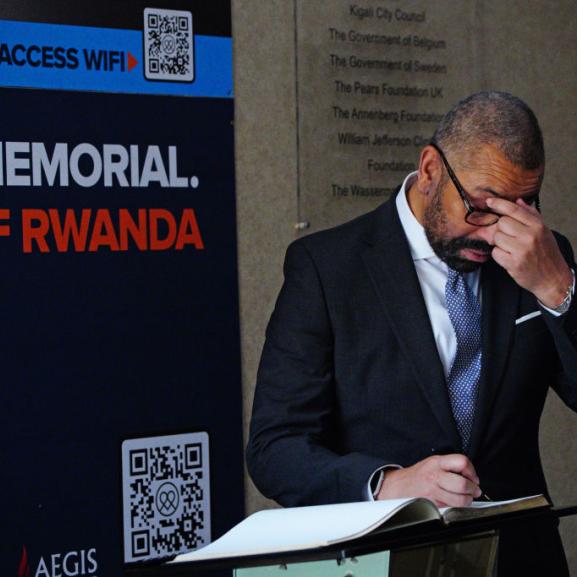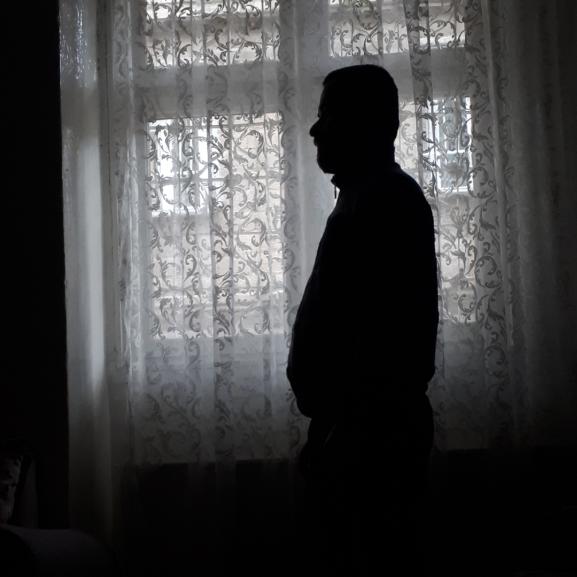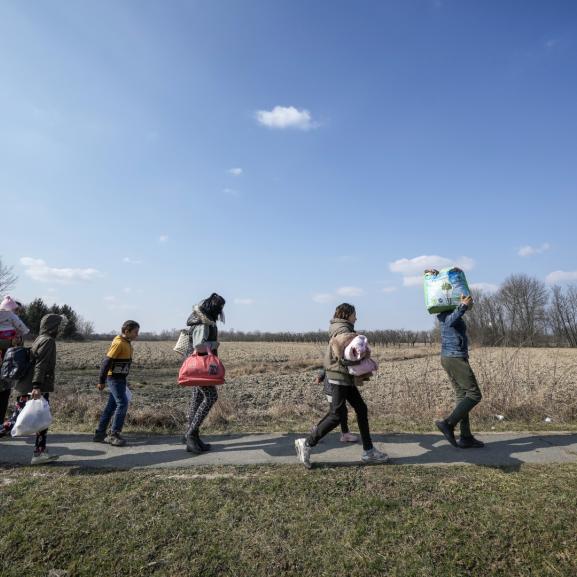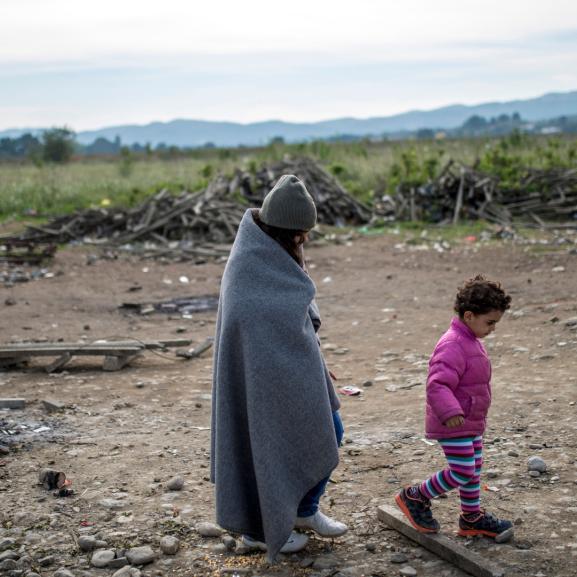How does the UK treat survivors of torture?: UK asylum policy update - three key issues right now
The torture survivors we work with come face to face with the insidious tentacles of Prime Minister May’s ‘hostile environment’ daily.
When they live in fear of being sent home after years of hopelessly trying to prove what they’ve been through to the Home Office. When they battle ill-health in poverty and in unsafe housing. When they’re too scared to visit the doctor…
These hostile policies impede just about every step of a torture survivor’s long road to recovery. But one thing’s for sure – speaking out and taking action can help pressure for change, and your help is more important than ever…
It’s been a busy year so far for our domestic policy and campaigning team, the survivor activists we partner with, and for our brilliantly committed supporters all around the UK. As we rapidly progress to the year-end and get planning for next year (watch this space for new ways to get involved), here’s an outline of three of the key themes our dedicated team are working away on right now.
Read on to find out: how does the UK treat survivors of torture when they seek safety here? Our summary of some important issues right now.
From housing to healthcare: the upward hill to survive and thrive
Everyday life comes with many challenges for torture survivors in the UK, particularly for those seeking asylum – a process that often takes months or even years.
During this time, people aren’t permitted to work or claim mainstream benefits. Instead, they live off an allowance of just £37.75 for all their food, clothing, personal and travel needs, and are often housed in dirty and poorly maintained asylum accommodation.
People frequently become physically and mentally unwell, and their current conditions - such as the PTSD symptoms suffered by people who’ve been tortured - are likely to worsen and take longer to heal.
We’re continuing to take action on poverty in the asylum system:
- More than 3,000 supporters have supported our calls for providers to ensure housing is safe and adequate for survivors of torture, which led to MPs citing our evidence in Parliament.
- Thousands of supporters donated to our Emergency Relief Fund to help provide people in need with small one-off grants.
- We’re supporting Refugee Action’s Lift the Ban campaign, calling for asylum seekers to be allowed to work whilst they await a decision – enabling them to use their skills, provide for themselves and their families, and live with dignity.
We’re also lobbying for change on healthcare charges introduced last year, which require some groups of immigrants to pay for certain types of healthcare. Asylum seekers are exempt, but not if they are ‘appeal rights exhausted’ – a common situation for the people we work with, and one that doesn’t mean they won’t go onto to successfully claim asylum in the future (due to problems exposed by our Proving Torture campaign – more below).
Torture survivors are also partially exempt, but only if they can prove that their medical need is a result of their torture. This is challenging due to the complex nature of health, and the myriad interrelated symptoms they may suffer, from chest pain due to anxiety and headaches due to PTSD, to chronic illnesses developed from years of poverty in the UK. And further complicated by barriers like short GP appointments and feelings such as shame, which may prevent people from disclosing that they’ve been tortured.
Confused? So are health practitioners, who struggle to correctly apply the complicated new rules and have joined the campaign against their new role as ‘border guards’.
The changes mean torture survivors can rack up debts for thousands of pounds that they’ll never be able to pay. They may receive free healthcare at A&E and not be aware that their x-ray in the room next door will result in a four-figure bill. They may be pregnant, but fear seeking health checks for fear of large debts and immigration sanctions for failing to pay these (a report last month by Maternity Action exposed the risks for expectant mothers). Even those entitled to healthcare fear being wrongly charged and may not understand their rights.
We expect our work on these issues to continue into next year, so please do follow us for the latest updates.
Torture survivors locked up, counter to UK immigration detention rules
For torture survivors, immigration detention can bring back memories of the torture they fled. Anxiety, depression, PTSD, self-harm and suicidal thoughts are common.
Home Office rules exist to prevent torture survivors from being detained for immigration purposes – but these aren’t working. Last year the High Court ruled that a made up Home Office definition of torture had led to torture survivors being unlawfully detained.
Since then, rushed and closed-door policy making has failed to improve things – torture survivors are still being detained and policies have become more complicated. A recent independent report by Stephen Shaw was released before Parliament’s summer break – allowing no time for MPs to debate the findings and hold the Home Office to account.
Our pressure has contributed to a huge swell of public and parliamentary support, as well as media spotlight. More than 22,000 of our supporters have taken action by writing to their MPs, signing our open letter to the Home Secretary and donating to our summer appeal to support ongoing campaigning work. In parliament, our concerns and evidence have been raised in House of Commons and Lords debates and other hearings.
Home Secretary Sajid Javid bowed to this widespread pressure in July by promising reform, including trialling alternatives to detention. We’ll be monitoring closely to make sure these promises lead to concrete change, involve steps to ensure torture survivors are never detained in any circumstances, and include Home Office transparency as well as independent monitoring. We’ll need your help – so keep in touch to hear about ways to get involved.
Home Office mistreatment of torture evidence in asylum decision-making
Almost two years ago we launched our Proving Torture campaign with new evidence revealing how Home Office caseworkers were routinely mishandling expert medical evidence of torture in asylum claims.
For torture survivors, this disbelief and the prolonged uncertainty about their future, which often lasts years, exacerbates existing mental health conditions and hinders recovery from torture.
In the cases we studied, an astonishing 76% of people successfully secured refugee status at a legal appeal, after being turned down by the Home Office – which also creates a substantial cost to the taxpayer.
Since then our campaign has made huge strides, with 41,000 of our supporters signing our petition to the Home Secretary, followed by a House of Commons debate with support from MPs on all sides, and a public commitment from the Immigration Minster to work with us for change.
This summer, we wrote to Home Secretary Sajid Javid with 35 other groups, highlighting how the Windrush scandal has revealed endemic inhumanity and poor-decision making across the Home Office, and we’ve raised our Proving Torture concerns in the government’s subsequent Windrush Lessons Learned inquiry.
Our team are currently hard at work behind the scenes on securing our key recommendations for Home Office training and an independent audit. Watch this space for news next year on how you can support the next phase of our campaign.
What next? Taking action for torture survivor’s rights
This December marks 30 years since the UK ratified the United Nations Convention Against Torture – an opportune moment to look at how the UK upholds its international obligations to prevent torture and ill-treatment. We’ll be submitting to the UN Committee Against Torture’s sixth periodic review of the UK and we’re working with Redress to gather evidence for a joint shadow report. This will include looking at the UK’s complicity in torture post-9/11, and we’re continuing to join Amnesty International to call for a judge-led inquiry.
Watch this space for more ways to support our policy and campaigning work this and next year, we’re going to need you!






